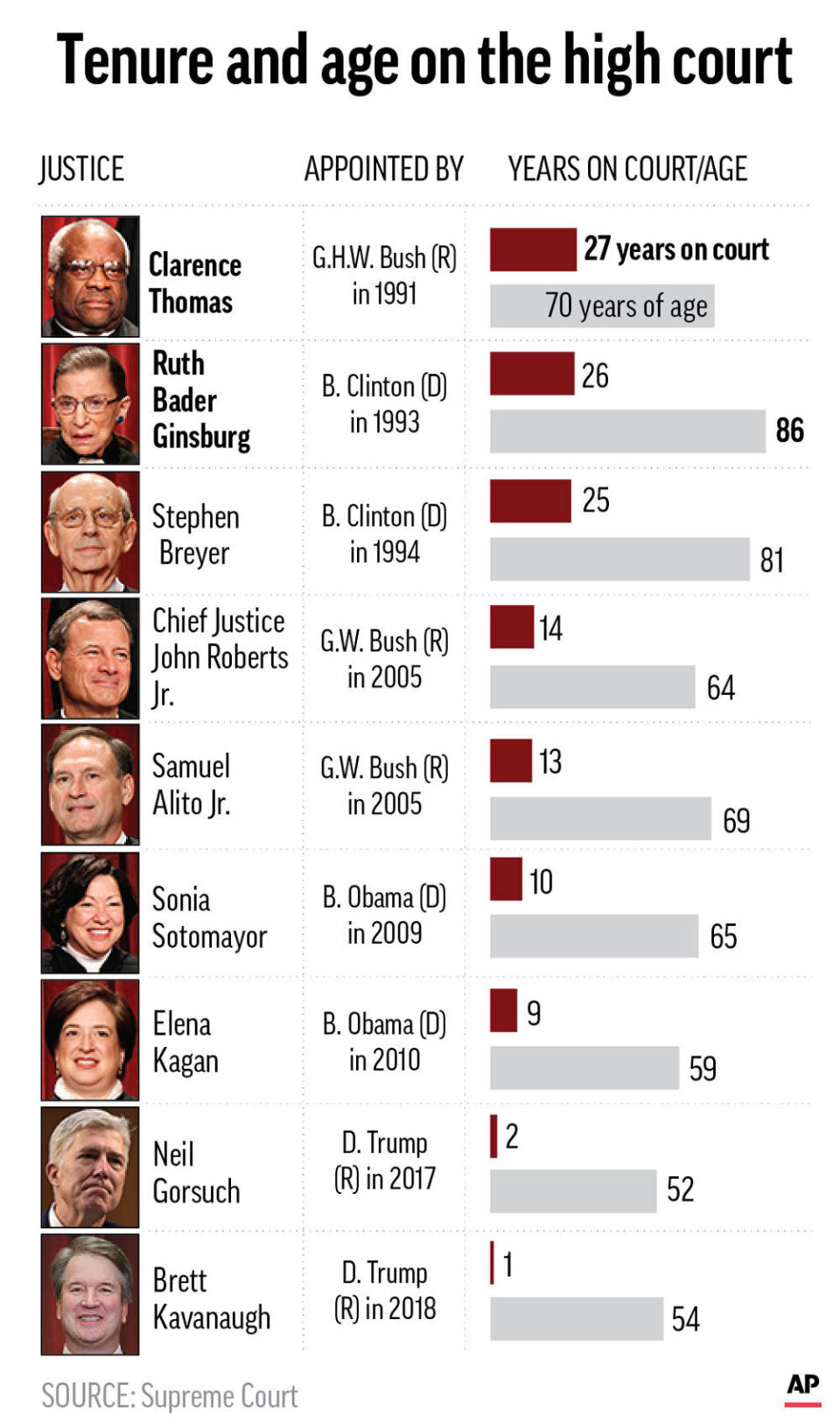The Latest: Justices weigh case over unanimous verdicts
WASHINGTON (AP) — The Latest on the start of the Supreme Court term (all times local):
2:30 p.m.
The Supreme Court appears ready to require that juries in state criminal trials be unanimous.
The justices heard arguments on the first day of the term Monday in an appeal by a Louisiana man who is serving a life term for killing a woman after a jury voted 10-2 to convict him. Oregon is the only other state that allows for non-unanimous convictions for some crimes.
Louisiana voters have changed the law for crimes committed beginning this year.
There appeared to be wide agreement on the court to jettison a 1972 ruling that required unanimous verdicts in federal, but not state trials.
___
11:20 a.m.
The Supreme Court has begun its election-year term by wrestling over whether states must allow criminal defendants to mount an insanity defense.
There was one minor surprise when the justices took the bench Monday. Only eight justices were present. The court says 71-year-old Justice Clarence Thomas is at home, likely with the flu.
Justice Ruth Bader Ginsburg was in her customary seat to the left of Chief Justice John Roberts. The 86-year-old Ginsburg asked the first question in the insanity arguments. Ginsburg was treated this summer for a tumor on her pancreas.
___
12:30 a.m.
The justices are returning to the Supreme Court bench for the start of an election-year term that includes high-profile cases on about abortions, protections for young immigrants and LGBT rights.
The court meets Monday morning for its first public session since late June. First up is a death-penalty case from Kansas about whether states can abolish an insanity defense for criminal defendants.
The justices also will hear arguments Monday in a challenge to a murder conviction by a non-unanimous jury in Louisiana.
The term could reveal how far to the right and how fast the court's conservative majority will move, even as Chief Justice John Roberts has made clear he wants to keep the court clear of Washington partisan politics.

